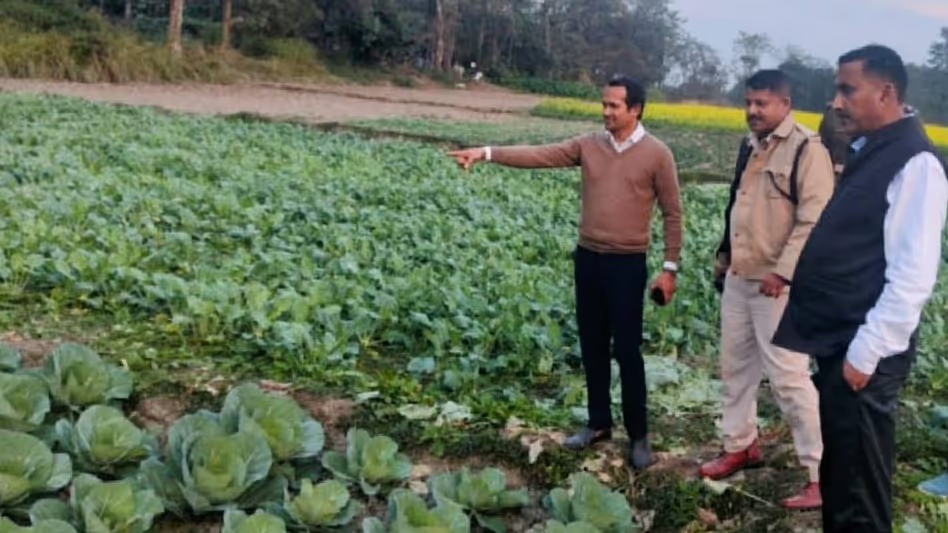At its entrance, the District Jail, Barpeta looks like any other jail in the country. But walk deeper into the grounds, and you will see a completely different picture. Vast fields as far as the eye can see teeming with mustard, trees laden with fruits and vegetables, a mini bee farm, and ever rarer crops like the nutritious apple berries bloom here.
Spread over 127 bighas, the Barpeta Jail has a holding capacity of 413 (368 males and 45 females). Initially established as a makeshift jail in Barpeta Town, it was relocated to its present location, just 2 kilometers outside the town, in 1970. Previously, the jail grounds were predominantly used for paddy cultivation. So what brought about the transformation? So what brought about the transformation?

The initiative to introduce mixed cropping can be largely attributed to the efforts of District Jail Superintendent Pranjal Kumar Sharma and Jailor Nilutpal Kakati. Thanks to the new initiatives kickstarted around a year ago, the jail generated revenue of over Rs 1 lakh for the government through the sale of agricultural produce alone.
What makes this development even more special is that agrarian activities are predominantly conducted by inmates on the premises, keeping them engaged and helping them learn new skills. Members of the District Administration, Barpeta, too have taken note of the transformative agricultural practices in the jail.

Additional District Commissioner Jayanta Bora, who recently visited the facility, has stressed that being engaged with agriculture could inadvertently help the inmates steer themselves away from a life of crime and become honest citizens.
“Apart from generating revenue for the government, agriculture in the jail will allow the prisoners to step out of their routines and motivate them to be more productive citizens,” ADC Bora has said. “Moreover, since they are learning to farm, they will be able to earn an income which is likely to further inspire them to become reformed persons.”
The highlight of the farm is a small berry farm, housing around 200 trees producing several precious variants of the fruit – Apple Berry, Miss India, and Thailand Berry. According to the jail authorities, the project is the first of its kind in an Indian jail.
Among vegetables, the jail grounds are home to okra, mustard, ginger, brinjal, cabbage, reddish, and a variety of cruciferous vegetables, including the perennial Indian favorites, cauliflower, and cabbages, the jail authorities have informed. The jail compound houses a small fishery where fresh fish can be found.

Recently, the jail authorities have also started planting strawberries and several varieties of flowers (including 1,000 rose shrubs) to uplift the mood of inmates as well as employees at the jail.
“Being with nature, you feel like you are in another world,” the jail authorities have stressed, explaining the rationale behind their ongoing initiative to transform the jail into a paradise of greenery. Two of the officials at the jail – Jailor Nilutpal Kakati and Warder Hiteshwar Hazarika – were recently awarded by the Government of Assam for their exemplary services.












